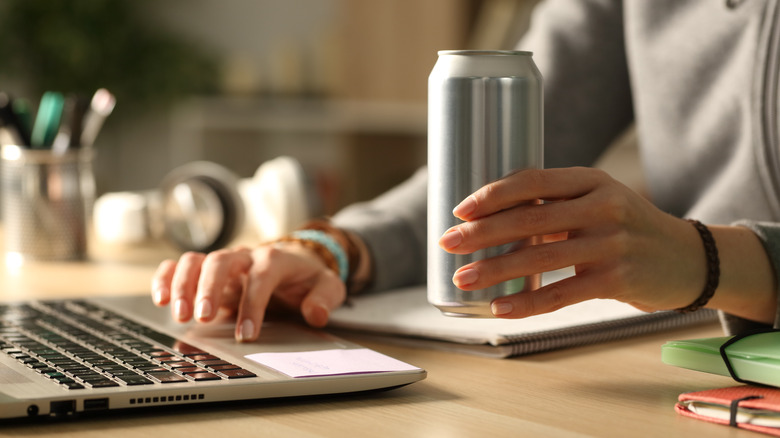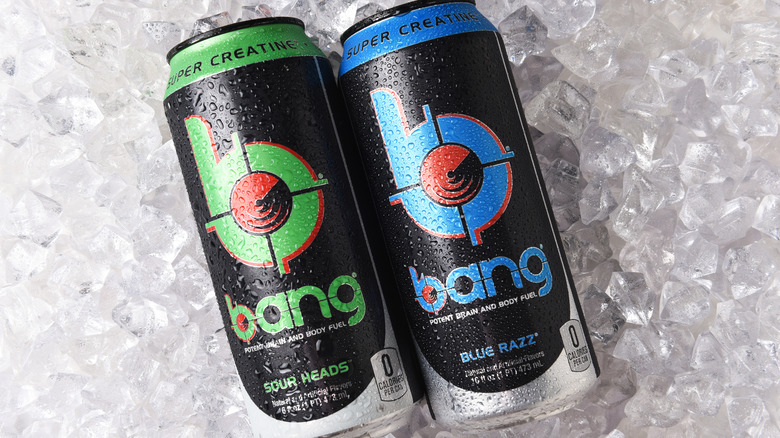Keurig Dr. Pepper May Be Adding This Brand To Its Energy Drink Lineup
Market demand for energy drinks is already big, but it's projected to get much bigger. According to Investopedia, worldwide energy drink sales are expected to exceed $53 billion by the end of this year, and over the next five years are forecast to surpass $86 billion.
A recent press release from Future Market Insights (FMI) helps to explain the increasing demand: "The market for energy drinks is driven by a large consumer base — comprised of all ages — and growing focus on health and fitness. Natural energy drinks that are extracted and directly sold to consumer are gaining traction among fitness enthusiasts while sports energy drinks are popular among e-sports players and gamers." FMI expects that by 2032, energy drinks as a market sector will top $98 billion, with growth spurred in large part by two generations of consumers: millennials and Gen-Z.
The appeal of energy drinks to young consumers and the association of energy drinks with fitness are almost certainly the primary reasons, by the way, behind the potential multi-billion dollar acquisition of an energy drink brand by multinational beverage company Keurig Dr Pepper.
Keurig Dr Pepper is trying to acquire Bang Energy
The sale is far from final, but according to Bloomberg, Keurig Dr Pepper is in negotiations to buy Bang Energy from its current owner, VPX (Vital Pharmaceuticals Inc.), a company that's headquartered in Florida and has a history dating back to 1993, when it was created by CEO Jack Owoc.
The most notable thing about Bang Energy, outside its booming sales numbers (VPX accounted for $1.4 billion last year, per Bloomberg), is its appeal to athletes. As Stack observes, Bang Energy drinks typically contain no carbs, no sugar, no fat, no cholesterol, and, best of all, no calories. What the energy drinks do have is lots of caffeine (300 milligrams per 16-ounce can), as well as an ingredient known as "super creatine." Bang Energy bills itself as a leader in sports nutrition and performance, and its testing achievements certainly appear to back up this claim. As Bang Energy's website points out, a study of several of its energy drinks by The College of New Jersey showed notable gains in energy, metabolism, reaction time, and focus. To date, Bang Energy has subsidized more than 20 sports-related studies at U.S. universities.
Bloomberg reports that the sale of Bang Energy to Keurig Dr Pepper, if it ultimately goes through, is likely to come at a price north of $2 billion. In fact, a sale price of $3 billion or more is not out of the question, confirmed a source close to the negotiations.

